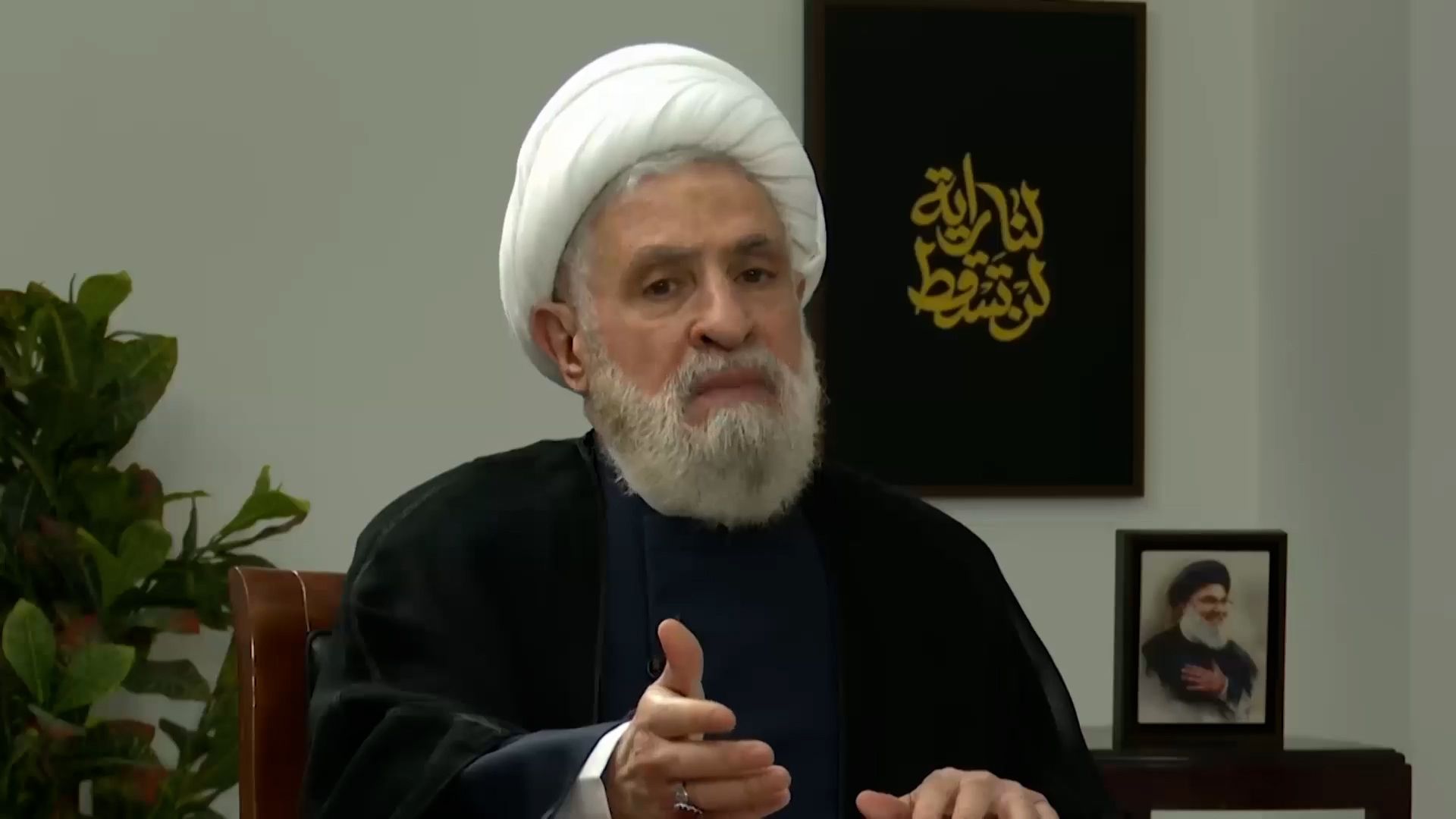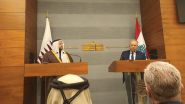
Hezbollah’s secretary-general, Naim Qassem, once again made a show of defiance on Friday, intensifying threats against the Lebanese state and its people. In a speech more aggressive than his previous ones, Qassem bluntly tied Lebanon’s fate to his group’s weapons.
“Lebanon can only be built with all its components. If it is to endure, it must do so with all of us, otherwise, we must mourn the country,” he declared, adding that he was ready to “wage a life-or-death battle against the Israeli-American project the government is seeking to implement.”
Speaking during a televised address marking Arbaeen, the 40th day of mourning for Imam Hussein, Qassem indulged in what has become his favorite exercise since serious talk of Hezbollah’s disarmament began: twisting the meaning of the Lebanese Constitution and the Taif Agreement to hypocritically justify the group’s retention of its arms, and with them, all the privileges it has amassed in the absence of a strong state it has spent years deliberately undermining.
Following Naïm Kassem’s speech, Hezbollah’s media office released a video titled “We will not betray, we will not hand over our weapons,” featuring excerpts from former leader Hassan Nasrallah, in which he declares that “no army in the world will be able to take Hezbollah’s weapons away.”
These privileges include mainly dragging Lebanon into destructive wars in service of its regional axis, led by Iran, and turning its weapons inward, invading Beirut and threatening fellow Lebanese, when its grip on security posts within the administration was challenged.
According to Qassem’s convoluted logic, the government’s August 5 decision on disarmament contradicts a clause in the Constitution’s preamble stating that “no authority contradicting the pact of national coexistence shall be legitimate.”
Positioning himself as a constitutional scholar, Qassem launched into a lengthy monologue about national partnership and what he claimed was the “legitimacy” of Hezbollah’s weapons. He insisted that the group “will not hand over its arsenal to the state,” though he added a conditional caveat: “as long as Israeli occupation and attacks continue.” He used this as a springboard to condemn what he called the government's inaction in the face of Israeli aggression.
Hezbollah’s Conditions
“We’ve said it before: expel Israel from the territories it occupies, and we promise full cooperation to discuss a national defense strategy,” Qassem said, without, of course, clarifying that such a strategy would need to align with Hezbollah’s own vision and terms.
Qassem also issued a warning to the government against trying to “drag the army into a conflict it rejects.” He held the cabinet “responsible for any strife that may arise,” adding ominously, “We don’t want conflict, but we will fully commit to this existential battle against the Israeli-American project, and we will emerge victorious.”
The Hezbollah official further hinted that ministers allied with the Hezbollah-Amal duo could resign if the cabinet does not backtrack on its decisions.
“Some wonder why Hezbollah hasn’t taken to the streets in response to the government’s actions. Even the US ambassador was surprised. Amal and Hezbollah have chosen to delay protests because there’s still a chance for dialogue and amendments. But if confrontation persists, protests or other actions will follow. For now, we’ve decided to remain in the government to bring it back to its senses,” he said.
What Qassem conveniently left out is that the government's decision is supported by the vast majority of Lebanese, across all sects, including within the Shia community he claims to represent. Hezbollah does not speak for all Shias; some, perhaps not a majority, are in favor of its disarmament.



Comments